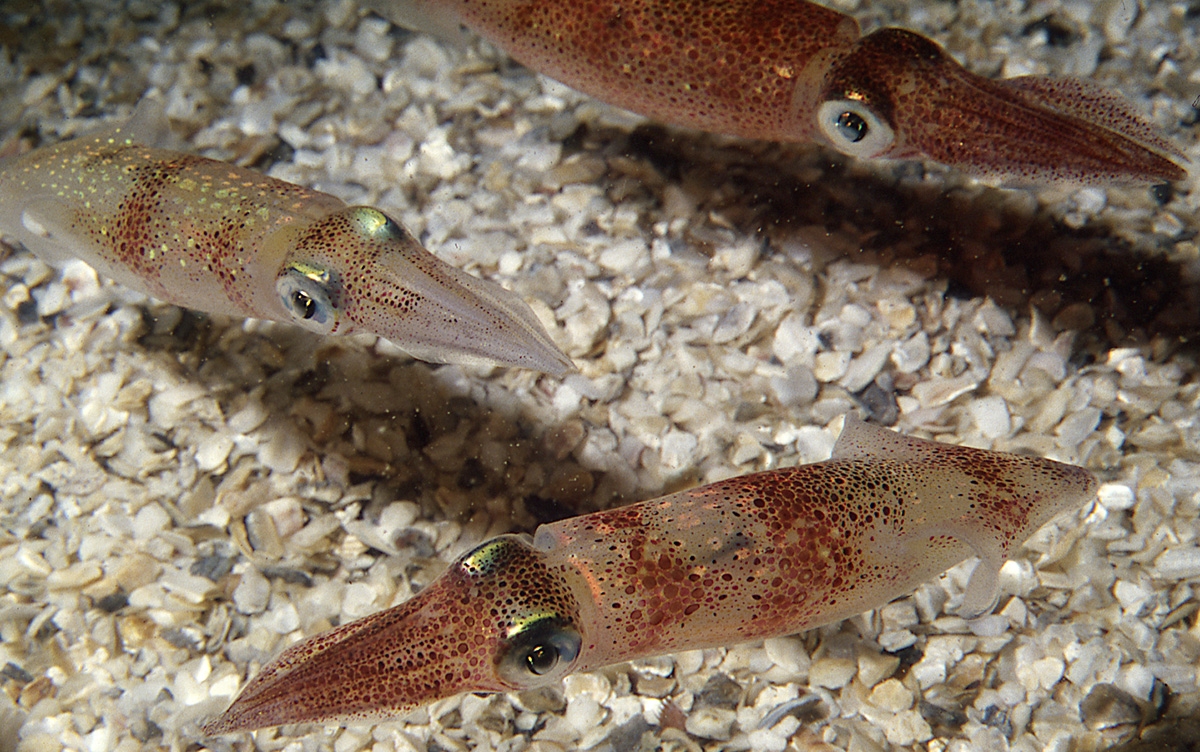An Ocean of Research at the MBL

Every year on June 8, people around the world recognize World Oceans Day. Started in 1992 by the United Nations, World Oceans Day is for acknowledging and celebrating the role of the oceans in everyday life and inspiring action to preserve, protect, and sustainably use marine resources.
“With proximity to the remarkable marine environment of Cape Cod, studying the ocean, its organisms and the coastal ecosystem is central to MBL’s research and education mission,” said Anne Sylvester, MBL’s director of research. “For more than 130 years, our scientists have looked to the ocean to help us better understand fundamental biology, our world, and ourselves."
Oceans cover 71 percent of the planet’s surface. They moderate our climate and help regulate the water and carbon cycles of the planet. Healthy oceans are also crucial in limiting the effects of global warming. A blanket of greenhouse gases in our atmosphere traps heat and prevents it from escaping into space. Most of that excess atmospheric heat ends up in the ocean, which can absorb massive quantities of heat without a large increase in temperature. According to the National Oceanic and Atmospheric Administration (NOAA), the ocean absorbs more than 90 percent of excess heat from Earth's system.
In honor of World Oceans Day, dive into just some of the recent MBL research revolving around the oceans and the organisms that live there that has been published since the last World Oceans Day.

Scientists have a handful of standard research organisms, including fruit flies and mice, that they use to study the evolutionary development (evo-devo) of animal lineages over time. Yet the more research organisms they can study, the deeper our understanding of life and the more knowledge we have to advance biomedicine and ecological conservation. MBL’s Margherita Perillo and collaborators at the Stazione Zoologica Anton Dohrn (SZS) in Naples, Italy, have added to the evo-devo toolbox by establishing Holothuria tubulosa, a species of sea cucumber, as an experimental research organism.
Published in the Proceedings of the National Academy of Sciences, this study uncovered how some microscopic single-celled organisms that are too light to sink beyond 100 meters or so — like phytoplankton and bacteria — end up going deeper into the ocean, where there's not enough sunlight for these photosynthetic organisms to live. MBL’s Alex Worden is a co-author.
In research published in the Proceedings of the National Academy of Sciences, researchers at the MBL and their collaborators discovered how changes in an important nervous system enzyme help a polar octopus thrive in frigid Antarctic waters. MBL's Joshua Rosenthal was co-author on the paper.
MBL Associate Scientist Mirta Teichberg and Adjunct Scientist Elena Lopez Peredo of Rochester Institute of Technology received a grant from Oceankind to develop a proof of concept for the application of biotechnological tools in the seagrass Zostera marina. The final aim of this project is the ability to genetically engineer this charismatic plant, which is a keystone species in marine ecosystems and displays highly specialized adaptations to the underwater environment.
A study published last summer in Nature Geoscience examined a nearly 20-year record of water chemistry collected from the six largest rivers that drain to the Arctic Ocean. The record signals widespread effects of climate change in the North. MBL’s Jim McClelland was a co-author on the study and a long-time collaborator on the project.
Sharks differ from other fish in many ways, including an apparently remarkable ability to heal from wounds, according to reports of sharks recovering from injuries sustained in the wild. While this healing ability has not yet been documented in controlled laboratory conditions, some of the chemical compounds found in shark skin may have significant biomedical potential. To investigate this possibility, two dermatology researchers from the Karolinska Institute in Sweden carried out research on a small shark, the spiny dogfish (Squalus acanthias) and other cartilaginous fish species at the MBL.
MBL’s Joshua Rosenthal and Carrie Albertin successfully engineered an albino strain of the hummingbird bobtail squid, Euprymna berryi. This advance, reported last summer in Current Biology, created a nearly transparent organism that offers scientists, for the first time, clear optical access for visualizing the nervous system in a living cephalopod.



